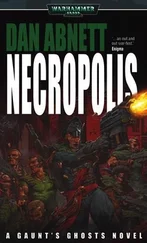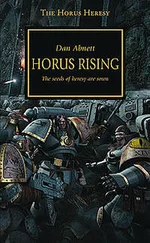Dan Abnett - Prospero Burns
Здесь есть возможность читать онлайн «Dan Abnett - Prospero Burns» весь текст электронной книги совершенно бесплатно (целиком полную версию без сокращений). В некоторых случаях можно слушать аудио, скачать через торрент в формате fb2 и присутствует краткое содержание. Жанр: Боевая фантастика, на английском языке. Описание произведения, (предисловие) а так же отзывы посетителей доступны на портале библиотеки ЛибКат.
- Название:Prospero Burns
- Автор:
- Жанр:
- Год:неизвестен
- ISBN:нет данных
- Рейтинг книги:3 / 5. Голосов: 1
-
Избранное:Добавить в избранное
- Отзывы:
-
Ваша оценка:
- 60
- 1
- 2
- 3
- 4
- 5
Prospero Burns: краткое содержание, описание и аннотация
Предлагаем к чтению аннотацию, описание, краткое содержание или предисловие (зависит от того, что написал сам автор книги «Prospero Burns»). Если вы не нашли необходимую информацию о книге — напишите в комментариях, мы постараемся отыскать её.
Prospero Burns — читать онлайн бесплатно полную книгу (весь текст) целиком
Ниже представлен текст книги, разбитый по страницам. Система сохранения места последней прочитанной страницы, позволяет с удобством читать онлайн бесплатно книгу «Prospero Burns», без необходимости каждый раз заново искать на чём Вы остановились. Поставьте закладку, и сможете в любой момент перейти на страницу, на которой закончили чтение.
Интервал:
Закладка:
His name was Hunur.
He spoke sense, though. During the barter-make, Fith had come to the gothi’s shelter, joined the listeners sharing the fire, and listened to him talk. The Balt gothi knew how the world worked. He talked plainly about the Verse and the Underverse, as if he had been told their secrets by the wights themselves.
The Ascommani gothi was a crazy brute. He had fits, and he smelled like a sea-cow, both of which factors had probably led to his election as gothi. He was good with stars, Fith had to give him that. It was as if he could hear the noise their rigs made as they skated around the glass of the sky. But the rest of the time he was foul-tempered and raving.
His name was Iolo.
At the barter-make, Iolo and Hunur had squared up to one another, sniffed and growled like rutting bull seals, and then spent the whole time trying to steal one another’s secrets.
But it had also been as if they were afraid of one another. It was as if, in trying to steal one another’s secrets, they were afraid that they were risking infection.
That was how it went with magic. Magic had an underside. Magic could transform a man’s life, but it could corrupt it too, especially if you weren’t careful, if you didn’t watch it and soothe it and keep it sweet. Magic had a nasty undercurrent that could infect a man if he wasn’t paying attention.
Magic could turn nasty. Magic could turn on you, even if you were the most exact and painstaking practitioner or gothi.
The worst magic of all, that was sky magic, and it was sky magic that was riding in the bow of their wyrmboat.
Fith wondered what the Balt gothi had said to his people to get them so fired up.
*
Lern swung them west, down the mirror-throat of the inlet, under the shadows of the spithead cliffs and out onto the ice field, the apron of the great glacier.
Ice was better than water; the same area of sail could invest you with ten times the speed. But the effort was mighty. Fith knew they’d have to change steersman in another hour, or stop to let Lern rest, because the concentration was so intense. Already, Lern’s eyes looked drawn, what Fith could see of them over the lip of his collar.
They cut up across a long strayke of ice field the colour of grey fish-scales, and passed through the collar ridges where glacial moraines of broken rock pushed up through the ice of the glass like extrusions of deformed bone.
The Balt boats were steadily falling behind. A good Balt boat was one thing, axe-carved from ocean-wood and whale bones, but a good Ascommani boat was quite another, especially a fine rig built for an aett’s chief.
They might live yet .
It was a fragile thought, and Fith hated himself for even thinking it and thus jinxing it. But it was real. They might yet outrun the Balts’ murder-make and find sanctuary.
The Hradcana, they were the best hope. The Hradcana were a major power in the west, with several aetts along the jagged backbone of the ice field, less than a day away. More important, a peace-make understanding had endured between the Hradcana and the Ascommani for the lifetimes of the last six chiefs. Most important of all, the Hradcana and the Balt had quarrelled and made red snow on and off for ten generations.
When Guthox saw the first Hradcana sails ahead, Fith’s spirit lifted. Some beacon look-out had seen them raking in across the ice field and sent a horn-blast down the chain, and the Hradcana chief had ordered out his wyrmboats to greet and assist the Ascommani visitor.
Then he realised, with a sinking feeling, that the explanation didn’t fit the facts.
вЂWe’re too far out,’ he murmured.
вЂWhat?’ Brom asked. He was trying to sew his cut up with fishing wire and a bone needle. The work was too fussy for gloves, but the windchill was too severe for bare hands to function with any finesse. He was making a mess of himself.
вЂWe’re too far out for any Hradcana lookout to have spotted us yet,’ Fith said. вЂThey’re coming out because they knew we were coming.’
вЂCrap!’ Brom snorted.
Fith looked at the sails of the Hradcana boats. Sails were the most distance-visible aspect of a boat, so they were often used to declare intention. A straw-yellow sail invited trade and barter. A purple sail indicated aett-mourning, the cut thread of a chief or a queen. A white sail, like the one dragging Fith’s wyrmboat, proclaimed open approach and embassy. A black sail, like the ones the Balt had come in under, was a treacherous sail, because it hid its declaration in the night, and thus defied the convention.
A red sail was an open announcement of the intention to murder.
The Hradcana sails were red.
*
Fith settled down in the rattling bow of the wyrmboat beside the Upplander.
вЂWhat are you?’ he asked.
вЂWhat?’
вЂWhat have you done? Why have you brought this on us?’
вЂI did nothing.’
Fith shook his head. вЂRed sails. Red sails. Gothi has spoken to gothi through the Underverse. The Balt came at us, now the Hradcana come at us too. Who else? Have you turned the whole Verse against us, or just against you?’
вЂI don’t know what you mean,’ the Upplander said.
вЂDid you make it your destiny to die here?’ asked Fith.
вЂNo!’
вЂWell,’ the hersir replied, вЂyou certainly seem to have put some effort into making it happen.’
*
It was an exalted place.
Even on that pestilential day, with the tail-end of the six-week campaign to take the Boeotian citadel chattering and booming in the distance, there was an odd stillness in the shrine.
Kasper Hawser had felt it before, in other places where mankind had focussed its worship for unnumbered generations. A cathedral in Silesia, just the shell of it, brittle as paper, rising above the fuming, white rubble and slag of the atomic dustbowl. The deep, painted caves in Baluchistan where a closed priesthood had concealed precious cellulose scrolls inscribed with their sacred mysteries, and thus preserved the essence of their faith through the Age of Strife. The high, monastic refuges in the Caucasus where scholars and savants fleeing Narthan Dume’s pogroms had hidden in exile, forlorn, ascetic outposts perched at such an altitude, you could see the expanding hive zones of the Caspian Bloc to the east and the nano-toxic waters of the Pontus Euxinus to the west, and the voice of some forgotten god lingered in the wind and the thin air and the bright sky.
The scholars had come out of Dume’s Panpacific realm with a priceless cargo of data that they had painstakingly liberated from the Tyrant’s library prior to one of his data purges. Some of that material, rumour suggested, dated from before the Golden Age of Technology.
When Hawser and his fellow conservators finally located the refuges, they found them long-since extinct. The cargo of data, the books and digital records, had degraded to powder.
The more man masters, the more man finds there is to be mastered; the more man learns, the more he remembers he has forgotten.
Navid Murza had said that. Hawser had never seen eye to eye with Navid Murza, and the various associations they’d been forced to make during their careers had fostered a sour and immotile disdain between them.
But there was no faulting Murza’s passionate intent. The strength of his calling matched Hawser’s.
вЂWe have lost more than we know,’ he said, вЂand we are losing more all the time. How can we take any pride in our development as a species when we excel at annihilation and fail to maintain even the most rudimentary continuity of knowledge with our ancestors?’
Читать дальшеИнтервал:
Закладка:
Похожие книги на «Prospero Burns»
Представляем Вашему вниманию похожие книги на «Prospero Burns» списком для выбора. Мы отобрали схожую по названию и смыслу литературу в надежде предоставить читателям больше вариантов отыскать новые, интересные, ещё непрочитанные произведения.
Обсуждение, отзывы о книге «Prospero Burns» и просто собственные мнения читателей. Оставьте ваши комментарии, напишите, что Вы думаете о произведении, его смысле или главных героях. Укажите что конкретно понравилось, а что нет, и почему Вы так считаете.












